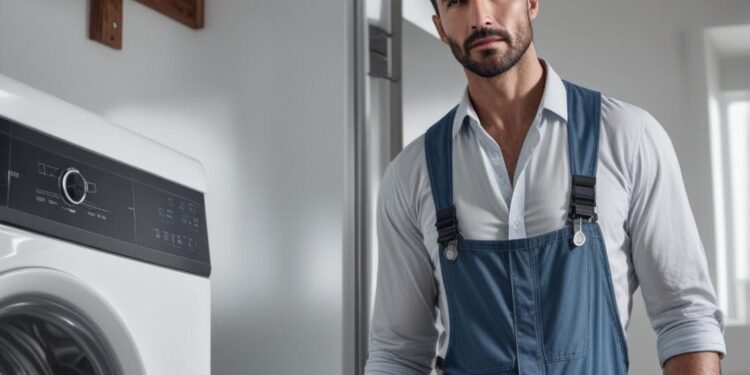Simple Plumbing Maintenance Habits for a Healthier Home

Table of Contents
Why Plumbing Maintenance Matters
Proactive care for your home’s plumbing system is crucial for smooth water flow, structural damage, mold threats, and home value. Leaks waste nearly a trillion gallons of water annually, impacting wallets and the environment. Most plumbing disasters start as minor issues. Partnering with an experienced Atlanta plumber for annual inspections and repairs is a practical investment, but the best first line of defense is a self-aware and attentive homeowner. Nurturing smart habits reduces the odds of major trouble, preserving your peace of mind and bottom line.

Daily Habits to Protect Your Pipes
Consistency in daily routines is one of the most potent ways to support your home’s plumbing system. Simple mistakes like rinsing leftover oil from a pan down your kitchen sink or flushing wipes labeled as “flushable” can create buildup and blockages that compound over time. These obstructions can lead to slow drains, backflow, and even burst pipes if the pressure escalates.
- Avoid pouring fats or oils down the kitchen sink. Instead, let them solidify, toss them in the trash, or collect them in a sealed container for environmentally friendly disposal.
- Install and clean sink strainers regularly. These catch hair, bits of soap, and food scraps before they enter your pipes, making them a visible first line of defense you can empty daily.
- Flush hot water through each drain after use, especially after washing dishes. This habit keeps greasy or soapy residues from building up inside the pipes, reducing the likelihood of clogs.
- Flush only waste and toilet paper down the toilet. Even “flushable” wipes, hygiene products, and tissues can cause sewer main issues and result in costly repairs.
Implementing these small checks and habits can help you identify a wide range of issues before they start and give your pipes a longer, trouble-free life.
Monthly and Seasonal Check-Ups
While daily attention can prevent many problems, your plumbing system also benefits from more thorough, scheduled check-ups. Once a month, walk through your home and look for early warning signs like water stains, mineral deposits, or dampness under sinks. Doing so routinely can help uncover slow leaks or early corrosion before they escalate into true emergencies.
- Examine cabinet interiors beneath every sink for moisture, mold, or odd smells—any of which suggest a leak may be present.
- Turn on faucets and showers to check for drips, diminished flow, or strange noises. These may indicate worn-out washers or blockages in the line.
- To keep drains clear, carefully pour boiling water down each bathroom and kitchen drain once a month. Avoid using drain chemicals unless necessary—they can corrode pipes and create more long-term issues than they solve.
- Periodically inspect your water heater for rusty spots, water at the base, or signs of corrosion around connections. Sediment buildup is common and, if left unchecked, can reduce heater efficiency and lifespan.
As the weather turns colder, insulating exposed pipes in unheated spaces like basements or garages prevents freezing and unexpected bursts. Fall is the ideal time to clear gutters and downspouts so your drainage system can cope with winter rains or snowmelt. Each month and season brings a new opportunity to protect your investment through mindful upkeep.
Eco-Friendly Maintenance Tips
Conserving water and reducing pollution starts with conscious plumbing choices at home. Even if your monthly bill isn’t the motivating factor, strengthening your home against leaks and minimizing waste is vital for both household and environmental health. The EPA highlights that with water-saving fixtures and habits, American families could save billions of dollars annually while drastically reducing their ecological footprint.
- Upgrade older taps and showerheads to low-flow models and aerators; they can reduce water use by up to 30% without a noticeable difference in pressure.
- Test each toilet with a dye tablet or food coloring. If the color leaks into the bowl, fix the flapper or fill valve to halt silent leaks that can waste gallons per day.
- In areas where it’s permitted, collect rainwater in barrels to water gardens or landscaping, cut water bills, and prevent stormwater runoff.
- Minimize harsh chemical cleaners. Instead, clear clogs with enzyme-based products that eat away organic material without harming your plumbing or the environment.
Sustaining healthy plumbing doesn’t have to mean significant sacrifices. Simple, eco-friendly tweaks can help your home run better and contribute more to water conservation efforts.
Tools Every Homeowner Should Have
You don’t need a garage full of specialized gear to handle most basic plumbing maintenance. Having just a handful of essential tools can empower you to tackle minor clogs, leaks, and fittings yourself or at least manage issues until a professional arrives.
- Adjustable wrench or pliers to tighten leaky faucets or supply line connections.
- Use both a cup plunger (for sinks and tubs) and a flange plunger (for toilets) since the different shapes work best for their fixtures.
- Plumber’s Teflon tape wraps around threaded joints and guarantees a watertight seal.
- Drain snake or auger for breaking up and removing hair or food clogs beyond the reach of a plunger.
- A large bucket and several towels are needed to catch water during repairs or emergencies.
These basics allow most minor leaks or blockages to be handled quickly and effectively, minimizing escalation and water damage.
When to Call a Professional
While many plumbing tasks can be tackled DIY-style, there are clear limits to what a homeowner should attempt alone. Recurring leaks, sudden water pressure loss, sewage backups, water stains on walls or ceilings, and any sign of foundation dampness require immediate, expert plumbing maintenance intervention. These scenarios can quickly spiral into emergencies, sometimes involving hidden water damage or safety risks. Ignoring or postponing professional help can double the cost of eventual repairs. Timely action protects your property and can prevent secondary expenses from mold, rot, or even insurance complications. Trust a certified expert when in doubt to evaluate the situation and fully provide safe, lasting solutions.






